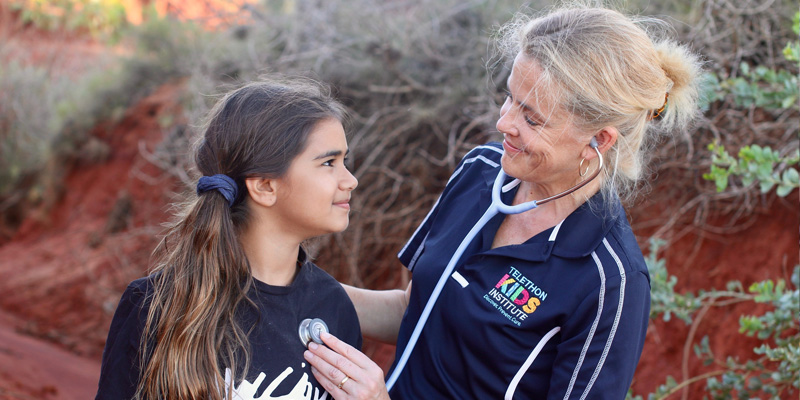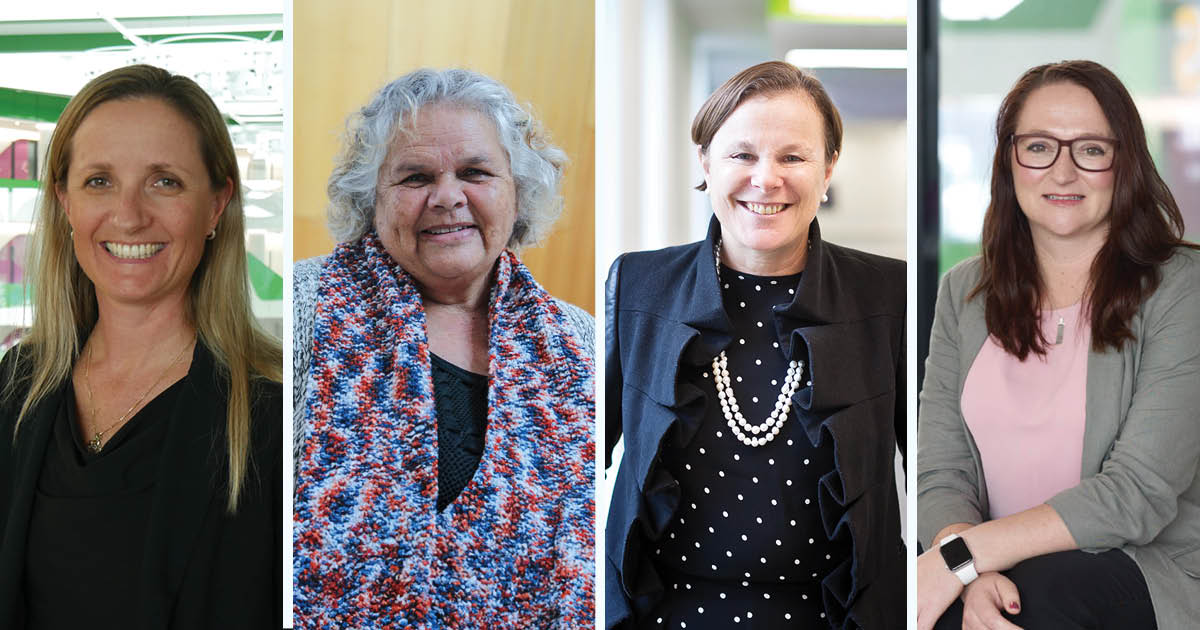Search

News & Events
Study finds high rates of chronic lung disease in remote-living Aboriginal childrenAlmost one in five children across four remote Kimberley communities has some form of chronic lung disease, according to a new study co-designed and conducted in partnership with Aboriginal communities.

News & Events
Australia Day Honours for researchers and esteemed ElderFour outstanding members of The Kids Research Institute Australia family – three researchers and an Aboriginal Elder co-researcher – have been named in the Australia Day Honours List for their outstanding service to research and the community.
Research
The Interseasonal Resurgence of Respiratory Syncytial Virus in Australian Children Following the Reduction of Coronavirus Disease 2019-Related PublicFollowing the end of winter, there has been a persistent absence of severe acute respiratory syndrome coronavirus 2 community transmission and no increase in influenza detections. Limited physical distancing measures have remained in place, with largely no restrictions on gathering sizes and no mandate for wearing masks.
Research
Immune Development in Early Life (IDEaL) longitudinal cohort study protocol: Identifying biomarkers of vaccine responsiveness, respiratory infection, and asthmaEarly-life immune development is a critical factor in predicting the risk of childhood respiratory infections, asthma, and poor vaccine responses. Identifying immune endotypes that predispose children to these conditions could lead to the development of predictive biomarkers and early interventions, potentially improving long-term health outcomes.
Research
No association between in utero exposure to emissions from a coalmine fire and post-natal lung functionStudies linking early life exposure to air pollution and subsequent impaired lung health have focused on chronic, low-level exposures in urban settings. We aimed to determine whether in utero exposure to an acute, high-intensity air pollution episode impaired lung function 7-years later.
Research
Bivalent Prefusion F Vaccine in Pregnancy to Prevent RSV Illness in InfantsWhether vaccination during pregnancy could reduce the burden of respiratory syncytial virus (RSV)-associated lower respiratory tract illness in newborns and infants is uncertain.
Research
A phase I clinical trial assessing the safety, tolerability, and pharmacokinetics of inhaled ethanol in humans as a potential treatment for respiratory tract infectionsCurrent treatments for respiratory infections are severely limited. Ethanol's unique properties including antimicrobial, immunomodulatory, and surfactant-like activity make it a promising candidate treatment for respiratory infections if it can be delivered safely to the airway by inhalation. Here, we explore the safety, tolerability, and pharmacokinetics of inhaled ethanol in a phase I clinical trial.
Research
Respiratory Syncytial Virus Reinfections in Children in Western AustraliaRespiratory syncytial virus (RSV) reinfection in children is poorly understood. We examined the incidence, characteristics, and outcomes of hospital-attended RSV reinfections in children <16 years in Western Australia between 2012 and 2022.
Research
The Respiratory Microbiome in Paediatric Chronic Wet Cough: What Is Known and Future DirectionsChronic wet cough for longer than 4 weeks is a hallmark of chronic suppurative lung diseases, including protracted bacterial bronchitis, and bronchiectasis in children. Severe lower respiratory infection early in life is a major risk factor of PBB and paediatric bronchiectasis.
Research
A Phase 1/2a Study Evaluating Safety and Immunogenicity of Ad26.RSV.preF in RSV-seronegative Toddlers Aged 12-24 MonthsRespiratory syncytial virus (RSV) causes serious illness in children. The Ad26.RSV.preF vaccine candidate was immunogenic with acceptable safety in a phase 1/2a study of RSV-seropositive children. Here, we assessed its safety and immunogenicity in RSV-seronegative children.
